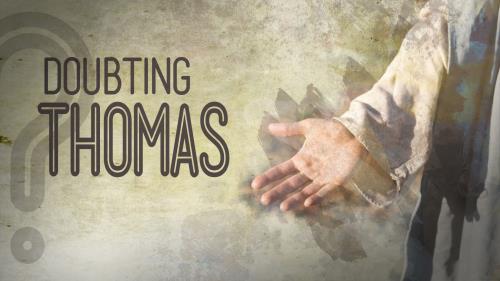-
Believe And Behave
Contributed by John Lowe on Jun 10, 2012 (message contributor)
Summary: “Believe and Behave” is the central theme of the book of Romans. Paul contends that what we believe has everything to do with how we behave. If our belief is wrong, our behavior will be wrong.
10-20-03
Title: Believe and Behave
Text: “And be not conformed to this world: but be ye transformed by the renewing of your mind, that ye may prove what is that good, and acceptable, and perfect, will of God.” (Romans 12:2).
Scripture Reading:
“For I am not ashamed of the gospel of Christ: for it is the power of God unto salvation to every one that believeth; to the Jew first, and also to the Greek.” (Romans 1:16)
“And be not conformed to this world: but be ye transformed by the renewing of your mind, that ye may prove what is that good, and acceptable, and perfect, will of God.” (Romans 12:2)
Introduction
“Believe and Behave” is the central theme of the book of Romans. Paul contends that what we believe has everything to do with how we behave. If our belief is wrong, our behavior will be wrong. Here’s an example of what I mean. My father was at one time a professional boxer. So until I was out of High School my dad trained me in the science of boxing. When he was drinking, which was every weekend, he would take me to Boxing Clubs and announce to the crowd, “My boy can lick anyone in the place.” I must have been a fair boxer, because I don’t remember ever losing. But this is the point I want to make. I believed that there was nothing wrong with fighting.
In grade school I was constantly fighting on the school grounds and so my parents received a note from the principle calling me a gang leader at recess. Because of a wrong belief, I was always in trouble.
I know from personal experience that wrong beliefs lead to wrong behavior. And if our behavior is wrong, our belief cannot be right. Our behavior says more about our beliefs than our verbal testimony or our written statement of faith.
We often tend to emphasize either belief or behavior so that we exclude one or the other. That makes for either a type of partial Christianity or an imbalanced one. Paul was a person with a balanced faith and he assigned equal importance to belief and behavior. We see that in his epistles.
For example, the first eleven chapters of Romans deal with belief and the last five deal with behavior. In the winter of A.D. 57-58, Paul was in Corinth, where he had just finished his third missionary journey. He was preparing to return to Jerusalem with an offering for the poor. But one day, he met a woman named Phoube, who lived in a suburb of Corinth, who was preparing to sail to Rome. So Paul saw an opportunity to send an important letter to Rome with her. Because there was no postal service in the Roman Empire, except for government business, personal letters had to be carried by friends. Paul was not sure that he would get away from Jerusalem alive. But he had a desire to leave a written letter of explanation of the gospel of salvation in the hands of the Christians at Rome, so he wrote this letter, which Phoebe delivered safely to the church.
He realized that this may be his only communication with this church which was so strategically located in the capital of the world, therefore he stressed what he must have felt to be the two principal truths of the Christian faith—the belief that results in salvation and the behavior that results from salvation.
There are two points that I want to make today and the first is THERE IS A BELIEF THAT LEADS TO SALVATION.
Paul begins his letter to the Romans with a few brief words of introduction. Then Paul exclaims, “For I am not ashamed of the gospel of Christ: for it is the power of God unto salvation to every one that believeth; to the Jew first, and also to the Greek” (Romans 1:16).
However, this bold statement could lead to a question, “What kind of belief enables us to receive salvation?” We can be saved, first of all, because of a belief in the unlimited power of salvation. Paul says that he is proud of the gospel of salvation. He considers himself privileged to be able to preach it.
My friends, that’s the way I feel too; I am grateful that you permit me to preach and teach God’s Word here at Laurens Memorial Home.
Now, when Paul made this statement, it sounded strange in light of all that had recently happened to him. At Philippi he had been jailed, at Thessalonica he had been expelled, at Berea he had been smuggled out, and at Athens he had been whipped. Paul mentions more than once how he had suffered for the sake of the gospel. The gospel that Paul preached in Corinth was considered “foolishness” by the Greeks and it was a “stumbling block” to the Jews.

 Sermon Central
Sermon Central



